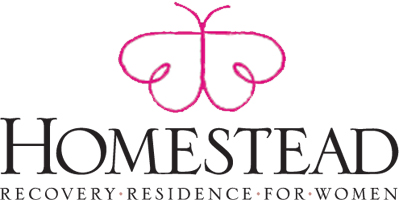Last Updated: April 17, 2020 by info
Okay you have surrendered, you are willing to go to ANY length to change… Now what? We hear in 12 step meetings that we need to “learn to live life on life’s terms,” but what does that mean exactly?
Okay you have surrendered, you are willing to go to ANY length to change…Now what? We hear in 12 step meetings that we need to “learn to live life on life’s terms” but what does that mean exactly?
First of all it’s a process, you are not being fair to yourself or those around you if you think you can leap from numbing out and only thinking about yourself and your substance of choice to being a real for sure grown-up that is ready to face anything life throws at them. That’s not only unrealistic but your expectations are going to set you up to fail. And as the saying goes…”expectations are premeditated resentments” and resentments are a surefire way to lead you back to your substance of choice.
What I’ve learned is that changing means I need to learn to cope with things (in recovery) that used to cause me to roll up in a ball and pull the covers over my head. I needed to learn new coping strategies. I realize now that many of my coping strategies prior to getting into recovery were emotion-focused. What I mean by that is I looked for solutions outside of myself. It might be asking someone to supply me with the answers, not such a great idea; all I’ve done is changed my dependency. Avoidance, denial and emotion were no longer successful ways for me to cope, I needed to replace them with action, acceptance and a willingness to change.
Click to open and review the Brief-COPE questionnaire, which is a 28 item questionnaire designed to measure effective and ineffective ways of coping with stressful life events or “living life on life’s terms” (Carver, 1997). Do you use avoidant coping or approach coping?
Once you’ve completed the questionnaire, think about the tools and resources that you need to support healthy, and more positive coping behaviors.
Keep trudging that road to happy destiny and enjoy! Margo
Brief-COPE. (n.d.). Retrieved from https://novopsych.com.au/assessments/brief-cope/
Carver, C. S. (1997). You want to measure coping but your protocol ’too long: Consider the brief cope. International journal of behavioral medicine, 4(1), 92-100.

Last Updated: April 17, 2020 by info
Hope, Coping Skills and the Willingness to Change
Okay you have surrendered, you are willing to go to ANY length to change… Now what? We hear in 12 step meetings that we need to “learn to live life on life’s terms,” but what does that mean exactly?
Okay you have surrendered, you are willing to go to ANY length to change…Now what? We hear in 12 step meetings that we need to “learn to live life on life’s terms” but what does that mean exactly?
First of all it’s a process, you are not being fair to yourself or those around you if you think you can leap from numbing out and only thinking about yourself and your substance of choice to being a real for sure grown-up that is ready to face anything life throws at them. That’s not only unrealistic but your expectations are going to set you up to fail. And as the saying goes…”expectations are premeditated resentments” and resentments are a surefire way to lead you back to your substance of choice.
What I’ve learned is that changing means I need to learn to cope with things (in recovery) that used to cause me to roll up in a ball and pull the covers over my head. I needed to learn new coping strategies. I realize now that many of my coping strategies prior to getting into recovery were emotion-focused. What I mean by that is I looked for solutions outside of myself. It might be asking someone to supply me with the answers, not such a great idea; all I’ve done is changed my dependency. Avoidance, denial and emotion were no longer successful ways for me to cope, I needed to replace them with action, acceptance and a willingness to change.
Click to open and review the Brief-COPE questionnaire, which is a 28 item questionnaire designed to measure effective and ineffective ways of coping with stressful life events or “living life on life’s terms” (Carver, 1997). Do you use avoidant coping or approach coping?
Once you’ve completed the questionnaire, think about the tools and resources that you need to support healthy, and more positive coping behaviors.
Keep trudging that road to happy destiny and enjoy! Margo
Brief-COPE. (n.d.). Retrieved from https://novopsych.com.au/assessments/brief-cope/
Carver, C. S. (1997). You want to measure coping but your protocol ’too long: Consider the brief cope. International journal of behavioral medicine, 4(1), 92-100.
Category: Know The Why
Blog: Know the Why